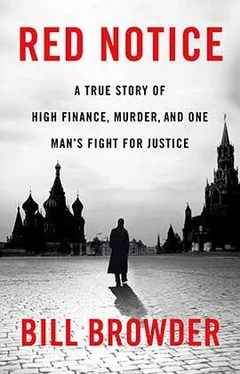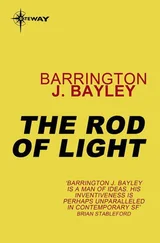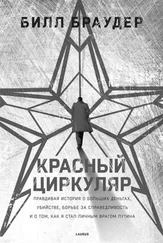In my case, the dam burst in October 2010, almost a year after Sergei’s death. I had been helping two Dutch documentary filmmakers access everyone involved in Sergei’s story. They interviewed each of us and were making a movie that they planned to premiere before eight different parliaments around the world on November 16, the first anniversary of Sergei’s murder. As we got closer to the release date, I became concerned that the movie wouldn’t be good enough to show to these important decision makers. I assumed that because it was produced in such a hurry, it wasn’t going to be high quality, and I was afraid it could do more harm than good.
Realizing how nervous I was and hoping to allay my fears, the producers invited me and Vadim to Holland to view the rough cut in October.
We flew to Holland and traveled to Oosterbeek, a small village an hour southeast of Amsterdam, to the home of Hans Hermans, one of the filmmakers. Before showing us the film, he served a traditional Dutch lunch of Edam cheese and salted herring in his small kitchen, then invited us into the living room. We sat on floor cushions as his coproducer, Martin Maat, started the movie.
The film, entitled Justice for Sergei , was not easy to watch. It didn’t tell me anything I didn’t already know, but it showed Sergei’s story in a completely new light. In addition to the horror of his ordeal, there were the everyday facts of his life before he’d been taken into custody: his devotion to his sons, his love of literature, his enjoyment of Mozart and Beethoven. These details were harder for me to bear than any of those describing his detention. Achingly, the movie ends with his aunt, Tatyana, telling the story of a recent visit to Sergei’s grave. After she left the cemetery, she walked by an old woman at the Metro station who was selling cornflowers. «She was so sad», Tatyana said. «I passed her, but returned to buy some flowers, knowing that’s what Sergei would have done. Whenever he walked with his mother past a lady selling plastic bags, he would always buy one. When the lady would ask, ‘Which one would you like?’ Sergei would answer, ‘The one no one else wants to buy.’ »
These are among the last spoken words of the film, but not the final message. To drive it home — to really show what the film is about — the image fades and a simple track of guitar and clarinet music ramps up. Clips from old home movies appear showing Sergei: raising a glass to toast a summertime family gathering; inspecting a waterfall on vacation; standing in the doorway of his apartment, entertaining dinner guests; sharing an outdoor meal with his best friend, joking, laughing, pointing at the camera. There is Sergei, alive as he would never again be except in the hearts and minds of those who loved him — who still love him.
Up until that moment, I had held it all in, terrified of what would happen if I allowed myself to let go. Now, in that room in Oosterbeek, I let my guard down and the tears flowed as they’ve never flowed before or since. I cried, and I cried, and I kept on crying.
It felt terrible, but it also felt good to finally feel the pain. Hans, Martin, and Vadim sat quietly, fighting back tears of their own, not knowing quite what to do.
Finally, I regained my composure and dried my eyes. «Can we watch it again?» I asked quietly.
«Sure», said Hans.
And we did, and I cried some more. That was when the healing finally began.
They say there are five stages of grief and that recognizing the pain is the most important one. That may be true, but recovering from a murder where the people who were responsible are walking free and blatantly enjoying the fruits of their crimes made recovery that much more difficult.
The main thing that has brought me some comfort has been the relentless pursuit of justice. Every parliamentary resolution, every news story, every asset freeze, every new criminal investigation, leaves me with a small feeling of relief.
The other thing that gives me some peace is seeing how Sergei’s story has changed so many lives. In contrast to other atrocities in Russia, Sergei’s murder has gotten under the cynical skins of Russians in ways that were previously unfathomable. Now prison guards across Russia worry about being too brutal in case they end up being held responsible for another Magnitsky. Now victims of human rights abuse in Russia feel that there is some recourse to justice as they gather their own «Magnitsky lists» to sanction the officials terrorizing them. Now Russia has been forced to focus on the horrible mistreatment of orphans who had previously disappeared from the national conscience. Now the concept of Magnitsky sanctions has been used as the main tool in fighting Russia over its illegal invasion of Ukraine. Perhaps most important of all, Sergei’s story has given everyone in Russia, as well as millions of people around the world, a detailed picture of the true brutality of Vladimir Putin’s regime.
This story has also changed matters outside Russia. The Russian authorities have been so brazen in pursuing me that they have ruined their standing with many international institutions. In a highly unusual step the Russian authorities applied again to Interpol to get a Red Notice issued for me, and for a second time they were rejected. Because of the abuses in my case, Red Notice requests from Russia are now no longer automatically accepted at Interpol.
The Russians also failed spectacularly on the libel front. The decision handed down by the British High Court in the libel case brought by Major Pavel Karpov was unprecedented. The judge decisively struck out Karpov’s lawsuit and made legal history in England, creating a precedent that would prevent future libel tourists like Karpov from abusing the London courts in their efforts to silence critics of authoritarian regimes.
However, as important as these developments are, it is often difficult for my friends and colleagues to understand why I continue to fight.
In the summer of 2012, my old friend Jean Karoubi came to my house one Saturday for a family visit. We had a pleasant dinner where we caught up on business and family life, but as I was making tea in the kitchen, he came in and asked if we could speak privately. I took him to our living room and closed the door.
He sat down and said, «We’ve been friends for a long time, Bill, and I’m very concerned. You have a beautiful family, you’re a successful businessman, and there’s nothing you can do to bring Sergei back. Why don’t you stop this campaign now before something else bad happens?»
This wasn’t the first time I’d had this conversation, and obviously I’m aware of the possible consequences of what I am doing. Nothing upsets me more than the idea that my children could grow up without their father. That thought haunts me. Whenever I’m attending my children’s school ballet or playing with them in the park, I wonder how many more times I will be able to do these things before it all comes tragically to an end.
But then I think of Sergei’s children, and especially about how his young son, Nikita, will never see his father again. And I think of Sergei, who was in a far more precarious situation than me, but wasn’t prepared to back down. What kind of man would I be if I did back down?
«I have to see this through, Jean. Otherwise, the poison of not doing anything would eat me up from the inside».
I certainly don’t do this out of bravery, though; I’m no braver than anyone else and I feel fear as much as the next person. But what I’ve discovered about fear is that no matter how scared I am at any particular moment, the feeling doesn’t last. After a time it subsides. As anyone who lives in a war zone or who has a dangerous job will tell you, your body doesn’t have the capacity to feel fear for an extended period. The more incidents you encounter, the more inured you become to them.
Читать дальше












